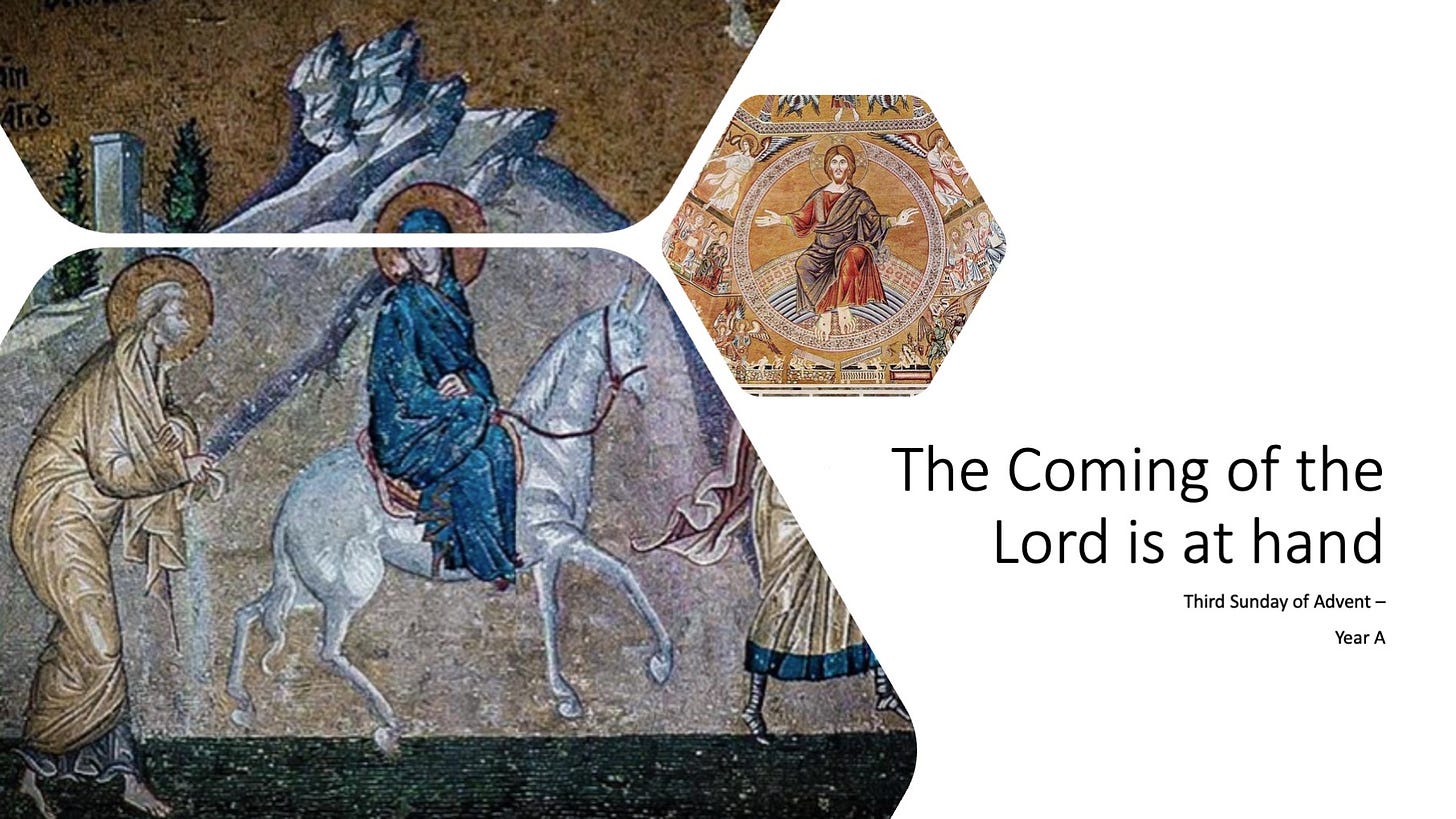Isaiah 35:1-6a, 10; James 5:7-10; Matthew 11:2-11
The theme of today's liturgy of the word is the coming of our Savior. Isaiah announces it (Is. 35: 4), the Gospel shows its fulfillment in Jesus Christ (Matt. 11: 2), and Saint James reminds us that Christ will come again (James 5:8). "We do not preach only one coming of Christ, but a second as well, much more glorious than the first. The first coming was marked by patience; the second will bring the crown of a divine kingdom" (Saint Cyril of Jerusalem).
The Promised Land became the parched land after 586 BC when the nation was led into Babylonian captivity, and a vast desert separated the exiles from their homeland. But there is always hope for those who trust in the Lord. "The desert and the dry land shall exult; the steppe shall rejoice and bloom" (Is. 35:1). How can life flourish in the wilderness? You need someone to find water, and that person was John the Baptist. "What did you go out into the desert to see" (Matt. 11: 7)? John's preaching filled the desert with life (Matt. 3:5). Those who were thirsty for God's word went into the wilderness and experienced a miracle: the feeble hands were strengthened, the weak knees made firm, and the frightened hearts became strong (Is. 35:3-4). How? John announced that "the Lamb of God who takes away the sin of the world" was coming after him ((John 1:27.29).
"Are you the one who is to come, or shall we look for another" (Matt. 11: 3)? In "the Lord of the Rings" by Tolkien, we read: "the hands of the king are the hands of a healer, and so shall the rightful king be known". In the same way, the rightful Messiah would be known: "the blind receive their sight and the lame walk, lepers are cleansed and the deaf people hear, and the dead are raised, and the poor have good news preached to them" (Matt. 11:5; Is. 35:5-6; 61:1). Those miraculous signs that accompanied Jesus' ministry indicate the purpose of His mission. He came to "give his life a ransom for" us (Mark 10:45) so that we could leave our Babylonian captivity and enter the Church rejoicing (Is. 35:10).
When Jesus came to be baptized by John, John said: "I need to be baptized by you" (Matt. 3:14). That desire was not fulfilled in his life, but it is fulfilled in ours. In the sacrament of baptism we are united with Christ and thus "the smallest in the kingdom of heaven is greater than" John (Matt. 11:11). But, John rejoices that all are going to Jesus (John 3:26). After all, he accomplished his mission. He prepared the way for the Bridegroom (Matt. 11:10) and revealed the presence of the Bridegroom to His Bride (John 1:36-37). And so, he could decrease and drink the cup of martyrdom (John 3:30; Mk 6:27-29).
"The coming of the Lord is at hand" (James 5:8). Apostle James does not speak about the first coming which was to fulfill God's plan of love. He refers to the second coming when Christ will come again in glory to judge the living and the dead. We are grateful to God that Jesus is the One to come and not someone else. He is our Brother, we know Him in faith and we know that with Him is mercy and fulness of redemption (Ps. 130:7). And when the risen Lord to whom "all authority in heaven and on earth has been given" (Matt. 28:18) shall come, He shall place His healing hand upon us and say: "Fear not, it is I" (Rev. 1:17; John 6:20). He will bring us to heavenly Jerusalem and crown us with everlasting joy (Is. 35:10).




